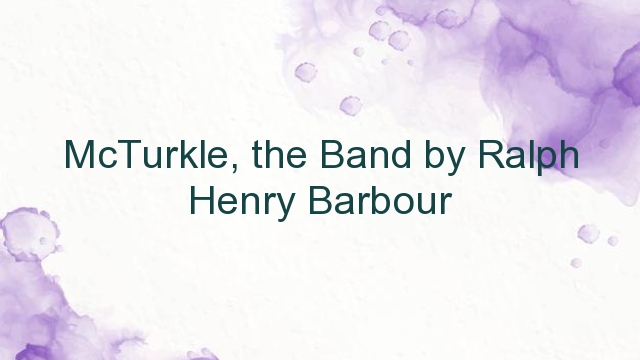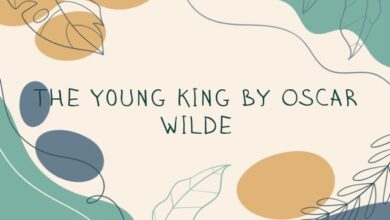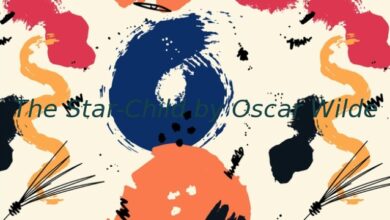
McTurkle, the Band by Ralph Henry Barbour
We had had hard luck at Harvard all that fall. First Phinney, our 208-pound left guard, dislocated his shoulder in the Indian game; then Hobb, full back, got a swat on the head that sent him to the Infirmary for two weeks; then Jones, our best half, hurt his leg. Those were the principal troubles, but there were lots of smaller ones besides. Every team that came to Cambridge did something to us; if they didn’t beat us they scored; if they didn’t score they laid up one or two of our men just to show that there was no hard feeling. Then Penn rubbed it into us good and hard–which wasn’t the way it was written–and about half the college began writing letters to the Crimson.
To make matters look worse, Yale had the best team she had had in several years; in fact, since the Gordon Browne aggregation. And our chance of winning from her was about one in one hundred. But we were a daffy lot that fall, and every time fate smote us we grinned harder and hitched up the enthusiasm another peg. On the Thursday before the game we had our fourth mass meeting in the Union. The captain, very much embarrassed, assured us that every man on the team was ready to do his level best and lay down his life for the honor of the Crimson–a fact which we knew before, but which we applauded wildly. Then the trainer told us that every “mon on the tame” was in the best physical condition, something which we seriously doubted, but which we also applauded wildly. Then the head coach informed us that it was a great sight to see the college get together in this way and that if we stood loyally behind the team on Saturday the team would do its part and fight to the last breath–or ditch, I forget which. We applauded that more wildly. Then the captain of the Nine got up, brushed the perspiration from his marble brow, and started the singing. The University Band, eleven strong, got together after a fashion and we pretty near lifted the roof. After that we cheered and sung some more and the enthusiasm kept on bubbling up. Finally, a lot of us in the back of the room yelled in unison:
“We–want–another–meeting–to-morrow-night!”
“So-do-we!” yelled the others.
And we kept that up until the leader told us we could have it. And presently we stood up and sang “Fair Harvard”–or as much as we knew of it–and broke up.
In the morning the Crimson contained a notice which said that there would be no meeting that night. But we didn’t believe it, because the meeting had been agreed upon. At least, a good many of us didn’t. Some did, though, I guess, for at eight the room wasn’t more than half full. We sat there and waited a while and did a little singing and cheering. But no one got on the platform to talk to us, and the band didn’t show up. So about a quarter to nine we moseyed outside. But we were still full of enthusiasm, and we wanted to work it off. So we stood around, about eight hundred of us, and informed the world at large that we wanted the band. No one seemed to care. But, of course, every minute the crowd got bigger, just as it always will if you get out and yell something. After a bit we decided to do without the band, and so we formed in fours and marched over to the yard, singing and cheering like mad.
After we’d marched around twice we had depopulated the buildings. Fellows put their heads out of windows, had a look, yelled enthusiastically, turned the gas up high, and tumbled downstairs and into line. By a quarter past nine we had easily two thousand fellows in the procession. And when you get that many together something simply has to happen.
“What we need,” said Bud, “is a band.”
“But we can’t get one,” answered Withey.
“Then let’s get part of a band.”
“Where?”
“McTurkle,” answered Bud, with a grin.
“A-a-aye!” we yelled. “McTurkle! We want McTurkle!”
So we left the gang yelling themselves hoarse in front of the university and scooted over to our dormitory. McTurkle was in. He was sitting at his table with a green drop light casting a wan glow over his classic features. The table was piled high with all sorts of books, and you could just hear McTurkle’s wheels go round. When we walked in he slipped the glasses from his nose by wriggling his eyebrows and turned around and looked at us blinking.
McTurkle was a funny genius. He was forever grinding. When he wasn’t grinding he was causing strange, painful sounds to emanate from his room. For a good while we had puzzled over those sounds. Then, finally, one fateful night, we had descended upon McTurkle in force and learned the truth. McTurkle performed on the French horn. A French horn is an instrument which is wound up in a knot like a morning-glory vine, and the notes have such a hard time getting out that they get all balled up and confused and are never the same afterwards. I’m not musical, and don’t pretend to be, but I’ll bet a hat that the man who invented the French horn was the same chap who invented French verbs. Well, we made McTurkle take a solemn oath never to practice after seven o’clock, because it was simply impossible to remember anything with those sounds sobbing along the entry. He was frightfully apologetic and promised at once.
When we went in Bud winked at us to leave the negotiations in his hands. We did so, drawing up in a semicircle behind him and looking very grave.
“McTurkle,” said Bud, “we have come to you on behalf of the university.”
McTurkle blinked harder than ever and looked a bit scared.
“Out there”–Bud waved his hand toward the window–“out there our college–your college–the college we all love awaits you.”
McTurkle gasped and tried to find his glasses, which were hanging over the back of his chair at the end of a black cord which he wore around his neck.
“McTurkle,” continued Bud, tensely, “as you know, we are on the eve of a great conflict. Tomorrow the pick of our athletic young manhood does battle with the brawny horde of Yale. Defeat looms ominous above–upon the horizon, but the unconquerable spirit of Harvard arises triumphant and–er–flaps its flaming pinions!”
“A-a-aye!” murmured Withey.
McTurkle found his glasses, fixed them on his lean nose, and regarded Bud with genuine alarm.
“Not for a moment do we acknowledge defeat, sir! Not until the pall of evening settles over the trampled field of battle shall we abandon hope. The university stands firm and undismayed behind her loyal warriors. Listen, McTurkey–McTurkle, I mean!”
Bud held up a hand imperiously and we all listened, McTurkle with his mouth wide open and his near-sighted eyes fixed in fascination upon the speaker’s face. From outside came a long, impatient wail from two thousand throats:
“We-want-to-go-to-the-Stadium!”
“What of that, McTurkle!” demanded Bud, sternly. “The spirit of Harvard speaks! Her sons demand to be led to the scene of the conflict that with mighty voices they may–er–consecrate the field to victory!”
“But–but–what is it you wish me to do?” stammered the dazed McTurkle, visibly affected.
“To lead them!” thundered Bud.
“Lead them?” cried McTurkle. “Who? Me? Me–ah–lead?”
“Ah! You, McTurkle! You, with your French horn!”
“You–you want me to play it?”
“We do. The college calls for you. Your duty, McTurkle, your duty to that college, to your fellows, summons you. Listen, McTurkle, to the voice of Duty and Patriotism!”
Apparently McTurkle’s manner of listening was to hold his mouth open. He held it open now, wide open. Also his eyes. At last he said:
“But–but–I’m afraid I don’t know any of the–ah–the college airs.”
“What of that! It is your leadership we want; that and the inspiring strains of your dulcet horn. Play what you will, McTurkle, only play. Remember that the success of the team may depend upon you! That to-night it is our duty and pleasure to show the team that the whole college is behind them, eager and loyal in its support!”
Never before in three years of college life had any one ever wanted McTurkle to do anything. And now the knowledge that the whole university demanded his aid, his leadership, was too much for McTurkle. His face glowed; he leaped to his feet; a Greek lexicon crashed to the floor; McTurkle was transformed.
“I’ll go!” he said, with majestic simplicity.
We cheered.
McTurkle feverishly wrested his French horn from its green bag, settled his glasses upon his aquiline nose, turned up the collar of his plaid lounging coat, and strode to the door.
We followed in triumph.
Over in front of the university they had cheered every one and everything, and now they were forming again into line of march.
“On to Soldier’s Field!” they cried.
We hurried across to the head of the procession, McTurkle’s long legs making us work hard to keep up with him. Arrived, Bud waved an arm for silence.
“Fellows!” he shouted. “Fellows!”
And when silence had fallen about us he swept his hand dramatically toward McTurkle.
“Gentlemen,” he cried, “the band!”
“A-a-a-aye!” they cheered. “Band! band!”
“Where’s the band?” called those further down the line, and the news traveled fast until from far down by Thayer came wild paeans of delight.
“Where’d they get it? … Where is it? … We want ‘On Soldier’s Field’! … We want ‘Veritas’! … Strike up! Move on, there! … ‘Ray for the band! … A-a-a-aye! Band! band!”
Up at the head of the line we were all laughing and shouting for fair. McTurkle, beaming delightedly through his glasses, his head held back inspiritingly and the folds of his plaid jacket waving in the November wind, placed the French horn to his lips, took a mighty breath and–the procession moved forward to the strains of “Annie Laurie!”
Now, I’ve heard since then that the French horn has a compass of only four octaves and is principally useful as an orchestral adjunct; that, in short, its ability is limited and its use as a solo instrument slight. All I can say is that the person who said that doesn’t know a French horn; anyway, he doesn’t know McTurkle’s French horn. Four octaves be blowed! McTurkle went fourteen, or I’ll eat my hat! Why, the way he put that thing through its paces was a caution! And as for–er–variations and such!–well, you ought to have heard him, that’s all I’ve got to say!
Out into the avenue we turned, through the Square and down Boylston Street. The line was so long that the cars were held up for ten minutes, and Bud was for circling back and holding them up ten minutes more. And all the while McTurkle, thin, gaunt, but impressive, marched at the head and informed us startlingly and with convincing emphasis that for Bonnie Annie Laurie he’d lay him down and dee. And we took up the refrain, and hurled it back to the gray November sky. Further along they were singing, “Hard luck for poor old Eli,” and still further down the line they were informing the dark front of the post office that the sun would set in Crimson as the sun had set before. And way, way back they were cheering like Sam Hill.
Oh, that was a glorious night! Talk about enthusiasm! We had it and to burn. We exuded it at every step. Enthusiasm was a drug on the market. Down by the river McTurkle gave Annie Laurie her final death blow and started in on the overture to “Martha.” That carried us as far as the Locker Building, and we marched on to Soldiers’ Field to the inspiriting strains of a selection from “Traviata.” McTurkle told me what they were afterwards; that’s how I know. Around the gridiron we marched once, the band still clinging to “Traviata” and the fellows singing whatever pleased them, generally “Up the Street.” Then we had a snake dance, a wonder of a snake dance! The band got lost in the shuffle, but later on we found him standing serene and undismayed under the shadow of the west stand spouting “Auld Lang Syne” till you couldn’t see.
Then Bud climbed up on to the edge of the Stadium and we did some more cheering, and when he called for “a regular cheer for the band” the way we hit it up was a caution.
Back in the Square, Bud led us over in front of the “Coop,” mainly, I guess, so we would stop the cars for a while. We had some more cheering then, and then Bud leaped up on the steps and announced “Speech by McTurkle!”
Nobody except a few of us knew who McTurkle was, but everyone cheered gloriously. We conducted McTurkle gently but firmly up the steps, and when the crowd got a good look at him they simply went crazy. McTurkle was deeply affected. So was the crowd.
“Speech! speech!” they yelled. “Spe-e-eech!” McTurkle, embarrassed but courageous, his voice faint and tremulous with emotion, spoke.
“Gentlemen,” he began.
“Apologize! … Take it back! … Who is he? … It’s the band! … ‘Ray for the band! … Go on! Say it!”
“Fellows,” prompted Bud.
“Fellows,” repeated McTurkle.
Deafening applause.
“I wish to thank you for this–ah–this flattering evidence of–shall I say esteem?”
“Don’t say it if it hurts you, old man,” some one advised.
“What’s he talking about?” asked another.
“I appreciate the honor you have done me,” continued McTurkle, warming to his work. “And it has been a pleasure, a great pleasure, as well as a privilege, to lead you this evening in your interesting–ah–exercises.”
“A-a-a-aye!” yelled the audience.
“There is to be, I understand,” said McTurkle, “a game to-morrow, a contest between this college and–ah–Yale.”
Laughter and deafening applause.
“While lack of opportunity has kept me from a personal participation in your games and sports, yet I am heartily in sympathy with them. Physical exercise is, I am convinced, of great benefit. In conclusion let me say that I trust that in tomorrow’s game of baseball–“
“Football, you blamed fool!” whispered Bud, hoarsely.
“Ah–I should say football–the mantle of victory will fall upon the shoulders of our–ah–representatives. I thank you.”
McTurkle bowed with gentle dignity.
“What’s his name?” cried a chap below.
“McTurkle,” answered Bud.
“Wha-a-at?”
“McTurkle!”
“Cheer for McTurkey!” demanded the questioner.
“A-a-aye!” cried the throng.
Bud leaped to the top step.
“Regular cheer, fellows, for McTurkle!” he cried. And it came.
“Har-vard! Har-vard! Har-vard! Rah, rah, rah! Rah, rah, rah! Rah, rah, rah! The Turkey! The Turkey! The Turkey!”
Then we went home.
I suppose this isn’t much of a story, especially as there is no climax; and I’ve taken enough English to know that there ought to be some sort of a climax somewhere. Maybe, though, what happened next day will serve for one.
I got halfway over to the field and found I had forgotten my ticket, and had to go back to the room for it. McTurkle’s door was ajar and through it came those awful sounds. I kicked it open and stuck my head in.
“Hello,” I said. “Do you know what time it is? You’ll be late.”
McTurkle took the French horn from his face and wiped the mouthpiece gently with a silk handkerchief.
“Late?” he asked.
“Yes, for the game. You’re going, of course, McTurkle?”
He shook his head, beaming affably through his glasses.
“No, no, I’m not going to attend the–ah–game.” He waved a hand toward the book-covered table. “I shall be quite busy this afternoon, quite busy. But you have my–my best wishes. May the–ah–the mantle of victory fall upon the shoulders–“
Well, we got licked that day. But, say, honest now, it wasn’t McTurkle’s fault, was it?





